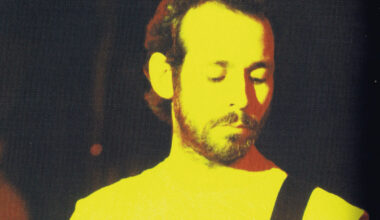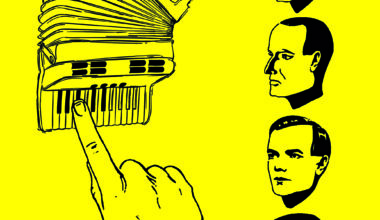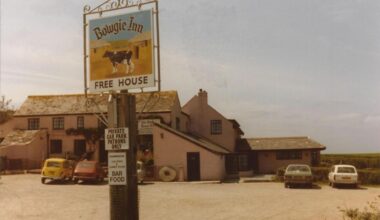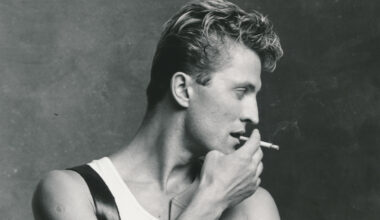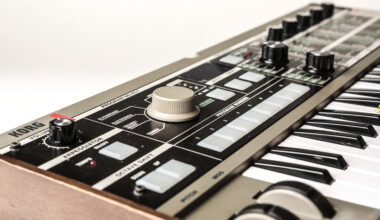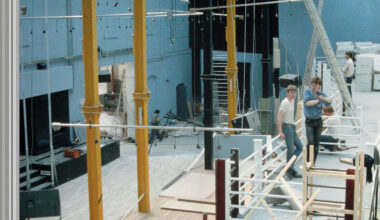There were lots of strange things going on in the dark corners of The Haçienda in the 1980s, but the strangest thing of all was Swing, the hairdressing salon in the basement
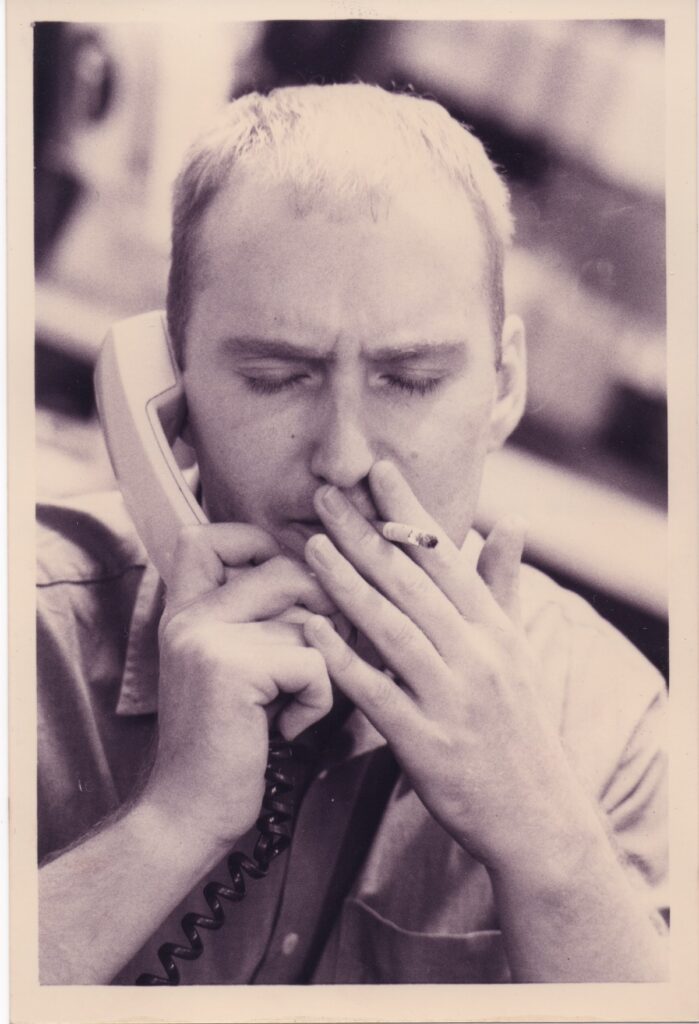
Manchester has given us countless multi-talented individuals over the years – musicians, DJs, label owners, club promoters, journalists and more – but Andrew Berry’s skill set puts him completely out on his own. He was one of the earliest DJs at The Haçienda and, for a short while, a recording artist. But he’s best known for Swing, the hairdressing salon he opened in the basement of The Haçienda in late 1983. The salon even had its own Factory Records catalogue number – FAC 98.
“I started working as a hairdresser as soon as I left school,” says Berry. “It was all I wanted to do when I was growing up. Roxy Music used to credit their hair stylist on their record sleeves and I thought that was amazing. I was desperate to get my name on a record sleeve and I thought being a hairdresser was the best way to do it. I don’t think it even occurred to me to try to join a band. I loved cutting hair too much.”
Andrew Berry’s first job was with Gareth & Colin, the Manchester hair stylists co-owned by Gareth Evans, later manager of The Stone Roses. As the 1980s rolled in, Berry started DJing around the city’s nightspots and promoting the occasional gig. When he booked jazz-pop hipsters Blue Rondo A La Turk at The Ritz in 1982, he gave the support slot to a new band that his mate Johnny played guitar in. It was the first time The Smiths had ever played live.
A few months later, New Order manager Rob Getton invited Berry to DJ at the recently opened Haçienda. He was popular with the crowds and given more and more gigs, but the late nights made it increasingly difficult for him to keep his day job going. The last thing he wanted to do was give up hairdressing, so he suggested that he set up a salon in the big dressing room in the basement of the club. Tony Wilson loved the idea. Berry called the place Swing, although he can’t recall why.
“Once we got it up and running, I’d spend my days in the basement cutting hair, then go upstairs and spend my nights DJing in the club,” laughs Berry. “It was a massive room down there and there were lots of mirrors, so it was a perfect space. We had to put in some chairs and a backwash and some more lights, but it was easy to kit it out. That’s why we were given a FAC catalogue number. Some people get very excited about all the weird things with FAC numbers, they think it was Factory being really cool, but it was actually mainly an accountancy thing. If they spent money on something, whether it was a record or a club or a hair salon, it got a FAC number.
“Most of the guys coming in wanted short back and sides, the fade cut with the clippers that became known as the Factory Haircut. They basically all wanted to look like Kraftwerk. Before Swing started, a lot of the bands used to go to a Polish barber behind the cathedral in town. That’s where Ian Curtis and Bernard Sumner and the lads in A Certain Ratio went. This barber was really good at the fade cut and he was cheap, but the place was quite rough. He didn’t have gowns, he used sheets of newspaper with holes punched in them, and you had to go there in the morning because he was always drunk in the afternoon. As fate would have it, he died around about the time Swing opened, so all of a sudden I had everybody asking me to do this haircut.”
At its peak, Swing had a staff of six and Berry’s regular customers included all the major Manchester bands of the 1980s, from New Order and ACR to The Smiths and The Stone Roses. Morrissey is said to have written ‘Hairdresser On Fire’ about him. He also occasionally used his scissors on visiting artists to The Haçienda.
“It did get a bit tricky later on, when the club got busier and they put a lot more gigs on. We’d have to move the chairs and everything else back when the bands and the roadies turned up at the end of the afternoon so they could use the space as a dressing room. Sometimes the place would get trashed after the show, so we’d have to clean everything up before we could start work in the morning. That was a right pain.
“Some of the artists from outside Manchester didn’t like us being in there at all. Spear Of Destiny were really obnoxious about it. Billy Bragg wasn’t happy either. He turned up early and he was like, ‘What the fuck are all these people doing in the dressing room?’. I tried to calm him down by saying, ‘Listen, Billy, if you need any smoke, just let me know and I’ll get you some’. I soon regretted that. He hit the roof. He was like, ‘Marijuana? How can you get stoned with the world in this state? Don’t you know what’s happening in Albania?’.”
Despite having no interest in playing in a band when he was growing up, Berry ended up recording two solo singles, ‘Unsatisfied’ and ‘Kiss Me I’m Cold’, in 1988 and 1990. The latter came out on Fontana and featured his old pal Johnny Marr, while ’Unsatisfied’ was released on Mark E Smith’s Cog Sinister label.
“I knew Mark E Smith quite well,” says Berry. “I used to hang out with him and Brix quite a lot. And I knew everyone in The Fall in the early days. Most of them – Marc Riley, Craig Scanlon, Steve Hanley, Paul Hanley – went to the same school as me in south Manchester. It was a Catholic school and Mark used to call them the Wythenshawe Jesuits. I think he only started Cog Sinister because Marc Riley had In-Tape Records and he wanted something similar. He went round the pub going, ‘Right, you and you and you, you’re all signed to my new label’. So that’s how I ended up doing a record. It was more Mark than me, though. I turned up at the studio with this jangly, folky song I’d written and he said, ‘Alright, forget all this fucking medieval poetry rubbish’, and totally changed it.”
By the end of the 1980s, Andrew Berry had moved Swing out of The Haçienda to new premises on Oldham Street, before transferring operations to London in the mid-90s. Since 2007, he has lived in Sydney, Australia, where he owns a salon called Viva. So after four decades of wielding scissors, whose hair does he remember as being the hardest to cut?
“I’m not saying who it was, but there was one very famous singer who was extremely difficult because had a phobia about getting his hair cut. It’s a real thing, like a fear of flying or heights. In bad cases, you get people who sit shaking and crying in the chair. It’s quite rare, I’ve only experienced it a few times, and this was the first person I came across who had it. He was terrified and I didn’t really understand why, so I wasn’t too sympathetic. I was like, ‘Pull yourself together, it’s only a haircut!’. Looking back now, I don’t suppose that helped much.”
